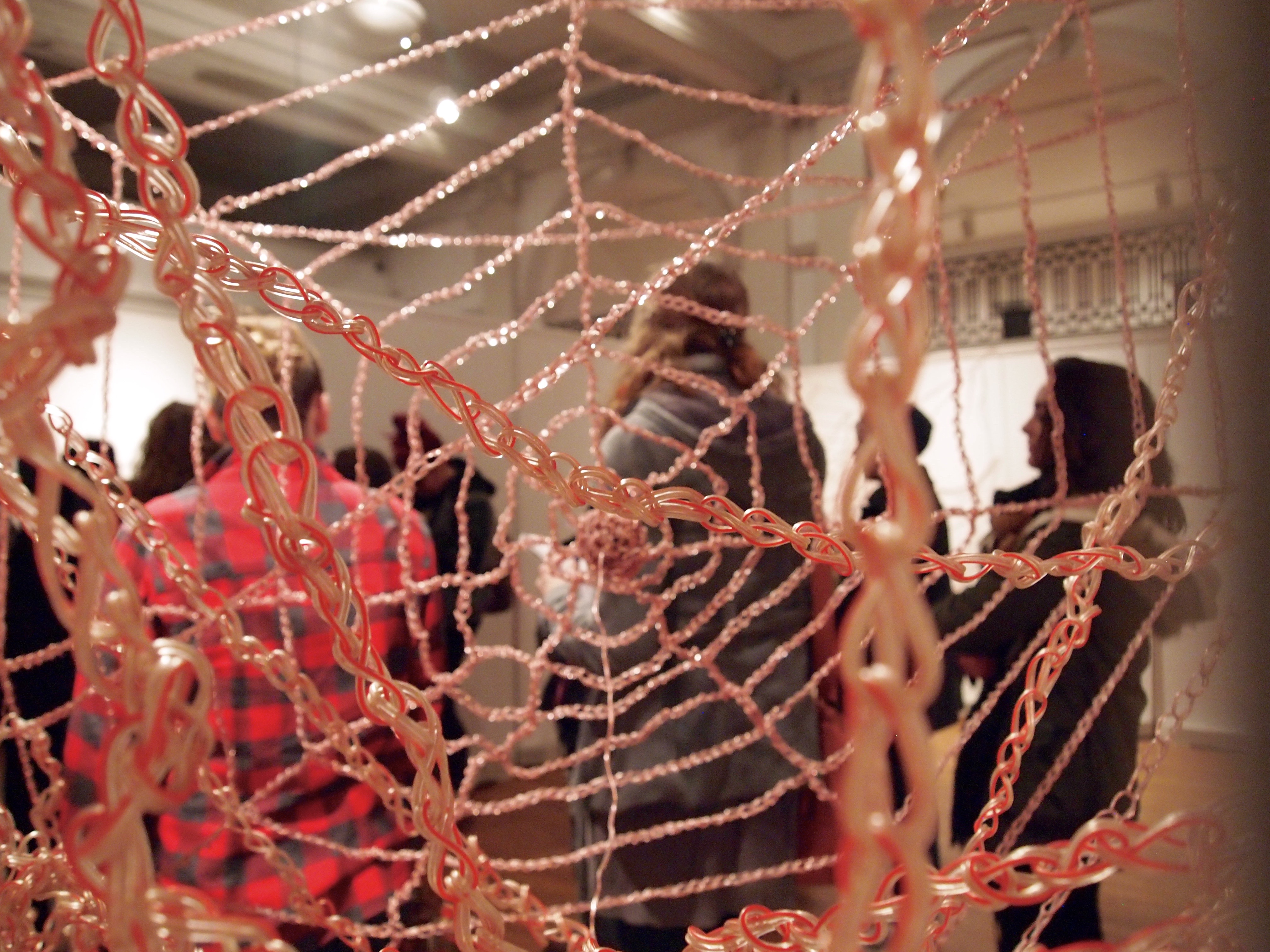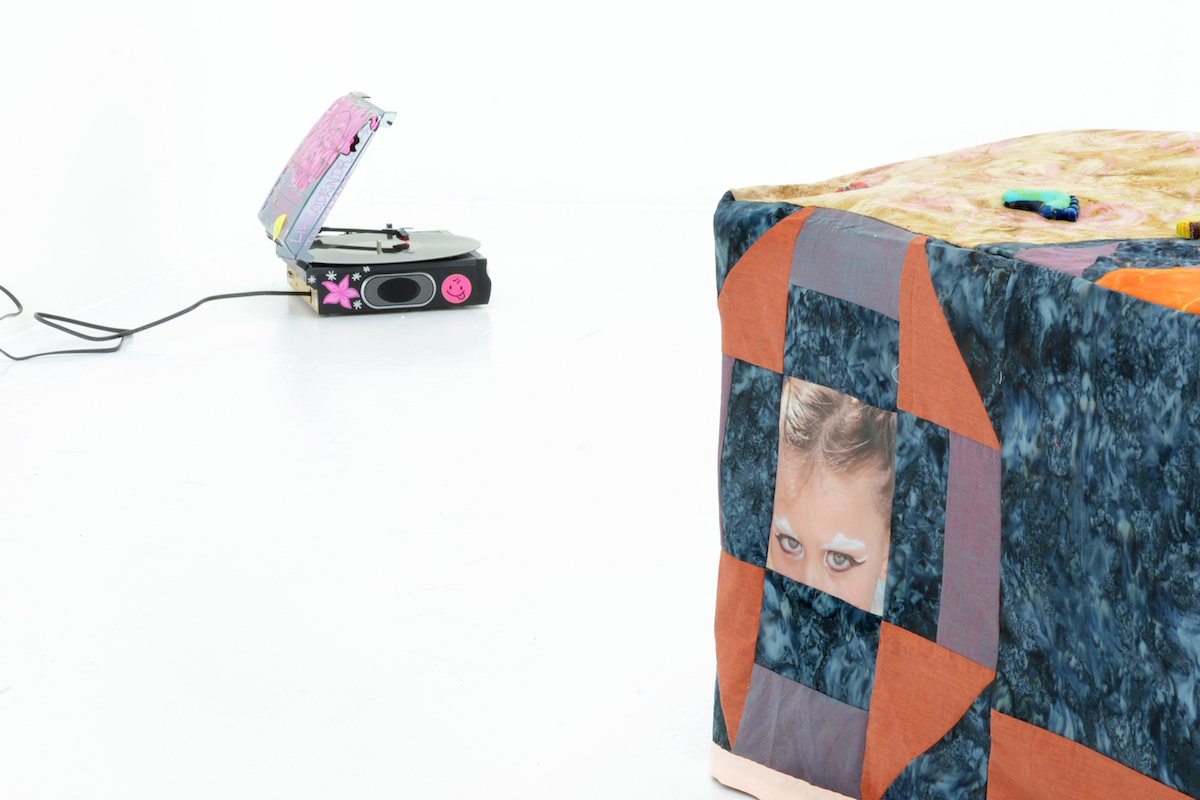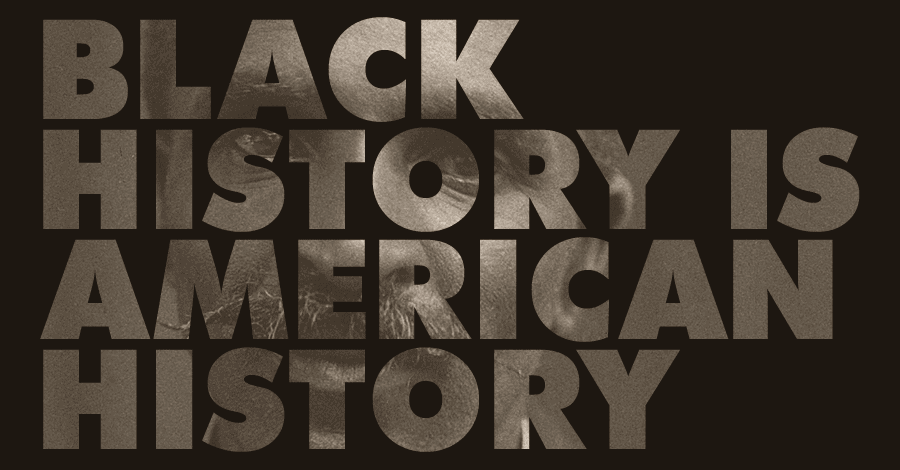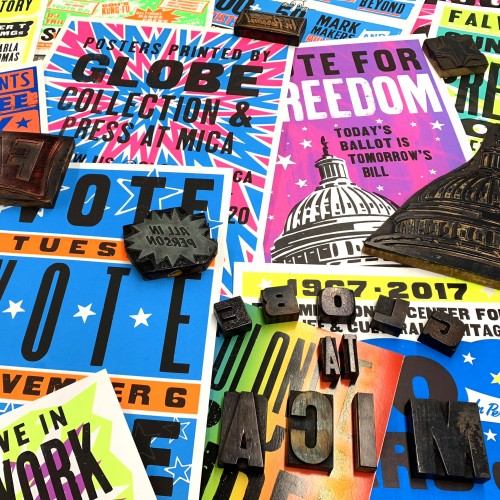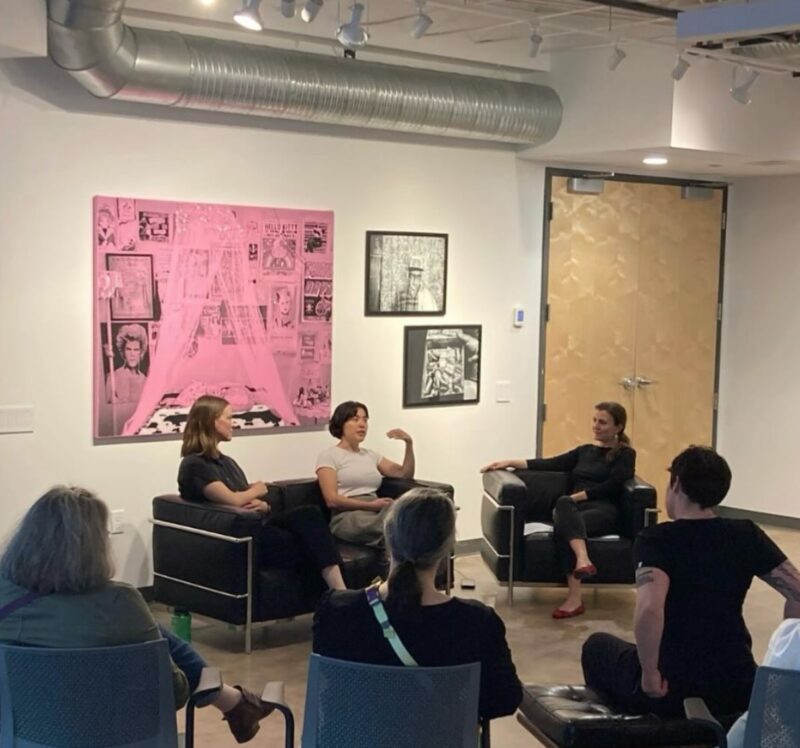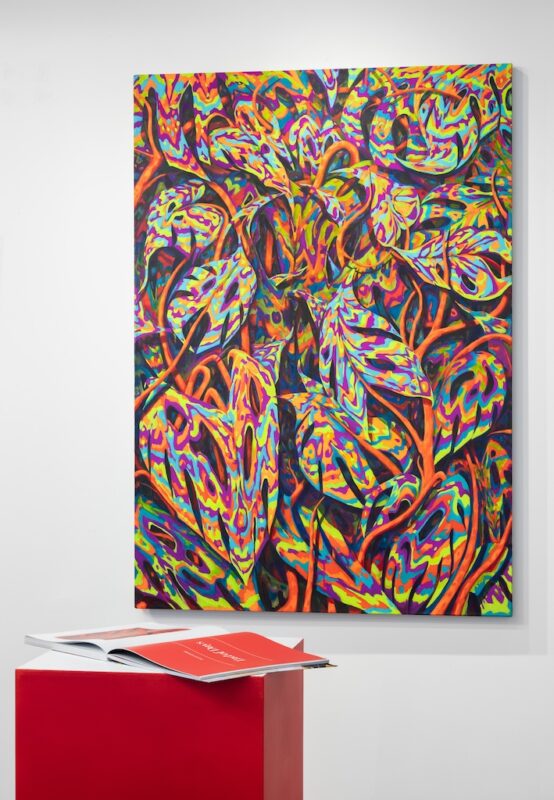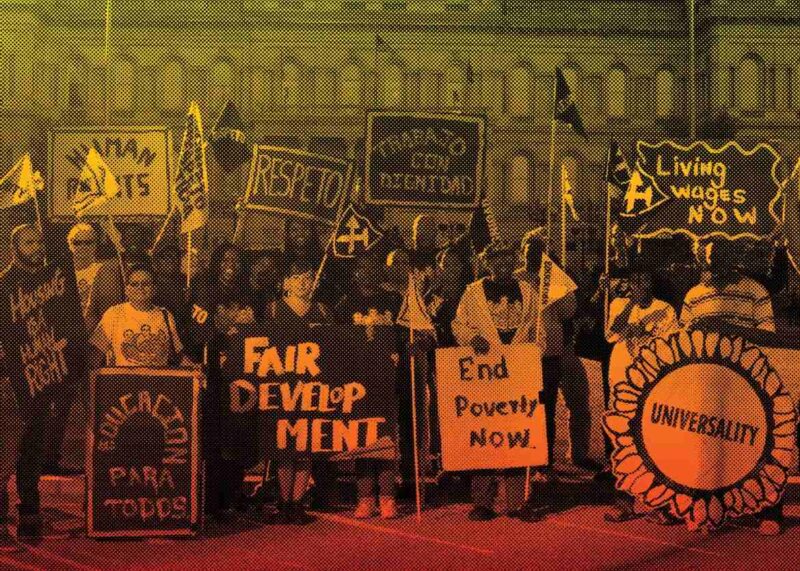Why Black History is for All Americans by Cara Ober
Recently, and for the first time in my life, I was asked, “How do you racially identify?” I was at a workshop dealing with race in Baltimore and all the participants were asked the same question, but I was the first to introduce myself and utterly unprepared to answer.
I’m white. I check the Caucasian box on standardized tests and job applications. I come from possibly Jewish or Protestant ancestors from Austria in the 1800’s with a few Irish people mixed in. My ancestors made beer in Pittsburgh.
No one had ever asked me this question before and it made me oddly defensive and inarticulate, just sitting at a table with colleagues I’ve known for years. We were there to listen deeply, share honestly, and become better educators. I was prepared to do all that, but I had never been asked to verbally state my racial identity, to label myself by my race.
This simple question, and my attempt to joke through its answer out of discomfort and insecurity, did more to illuminate my own lack of understanding of white privilege than the discussions that followed. I had never been asked this before. Not once in my life. Not even when traveling in other countries. This was shocking to me, the luxury of avoiding this request, and the realization of it all at once.
Unlike the people of color seated at the table with me, I was caught off guard by the way this question, even when addressed kindly and casually, would affect me. It rendered me inadequate and conflicted. First because I had no pat answer and then because I realized that this is a demand that people of color answer every damn day. Even when asked out of curiosity, rather than micro-aggression, this inquiry places you on the defensive. It raises the possibility that you don’t belong. It suggests that you are ‘other’ and not regular, that you are not seen or recognized. This question sets up an uneven power structure in its asking and I had never been on the receiving end of it.
I relate this experience because it illustrates what happens when one homogenous cultural group dominates all the others. It is this lavish and unselfconscious ignorance that is implicit in our American History, rather than our country’s very real multicultural evolution. Which brings me to Black History Month.

As a white American woman, my feelings about Black History Month are complicated. I love that every February is an opportunity to learn about my country’s collective history, the history not taught in school. However, it also succinctly reinforces that white history dominates the other eleven months.
As Alice Walker recently wrote, “Compressing all of black history into a single month seems the ultimate segregation.” Labeling one feel-good, obligatory month lets us off as a nation way too easily. Since its first colonies were founded, the United States has been home to Black and White and Asian people, as well as preexisting Native Americans and our collective history should reflect this honestly, but it does not.
“I see Black History Month as an opportunity to, in a sense, double down on our efforts to learn who we as Americans actually are, shorn of the myths too many have spun about us,” said Walker in the same statement. This positive attitude is a great model for all of us to consider each February.
Despite the fact that it’s the shortest month, we can all appreciate Black History Month as an opportunity to learn and listen. It is essential that we, as individuals and as a nation, become more aware of the very real achievements, the genius and the greatness in our history, and to see it attributed deservingly to people of color. It’s essential that we realize that this country was founded upon the efforts of black, white, and brown men and women, as well as the slave-owning white men who are chronicled in our history books and depicted on our national currency.
Just by keeping my mouth shut and paying attention this month, I learned about Robert Smalls, a former slave who commandeered a Confederate ship to rescue others and was later elected to the US House of Representatives. This year I learned about Marjorie Lee Browne, one of the first black women to earn a doctorate in mathematics and one of the earliest proponents of academic computing. I learned about Bridget Mason, who was born a slave but sued her owner when they travelled to California, a free state. She became a wealthy real estate investor and philanthropist. I became aware of the achievements of Maggie Walker, the first woman to found an American bank and serve as its president.
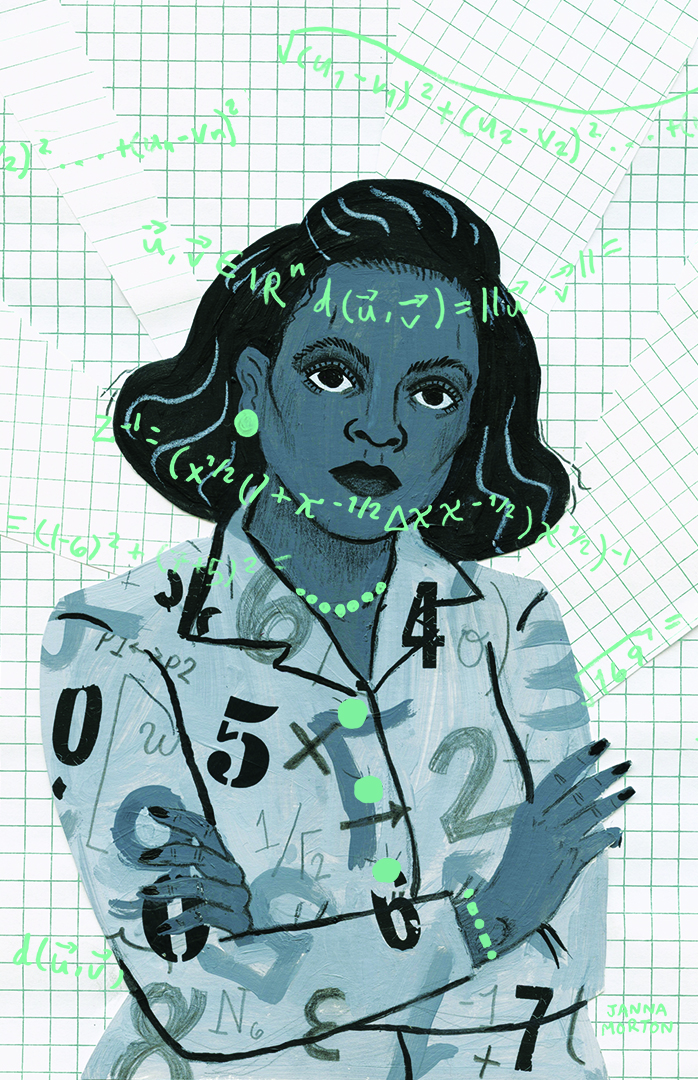 Illustration by Janna Morton of Marjorie Lee Browne for Women’s Work
Illustration by Janna Morton of Marjorie Lee Browne for Women’s Work
These folks, and so many more, are missing from our collective history and we are poorer as a nation without them. I guess it’s obvious, but I believe it is vital for white Americans to consider why these individuals have been omitted by our collective history, and to consider it especially in February, when their stories abound and resurface.
History is dense and never-ending, but should we accept that the majority of teachers, textbook writers, and scholars in the world are just too busy to adequately cover historical persons of color? Should we accept historical omissions along racial lines as a benign act of editing, that there’s simply too much material to cover in a semester? Or is it essential to view our current educational system as complicit in the historical practices of making people of color invisible or underachieving? We’re seeing the impact of these practices every day, but are seldom are given an opportunity to celebrate the achievements of the exceptional individuals who shaped our nation or to acknowledge the very real history of structural racism and racial violence in America.
Black history is U.S. history, but history is written by those with the power, currently those who benefit from the unequal structures that prop them up and keep others down. Sometimes I blame my own teachers for glossing over so much of our shared history, especially the painful parts, but it must be uncomfortable, even terrifying, to explain structural racism, lynching, and slavery to children. No matter what their educational credentials, teachers aren’t given adequate training in discussing the history of race in our country and they are scared to death of doing it wrong, and our current educational system isn’t much invested in exploring these topics.
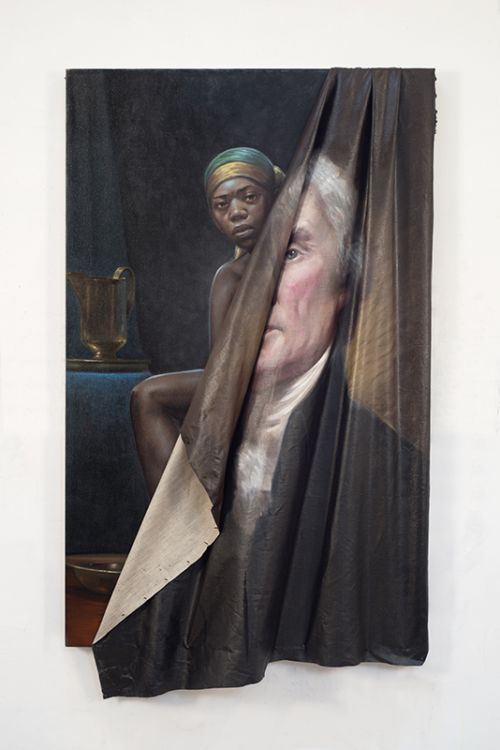 Behind the Myth of Benevolence by Titus Kaphar, who started making art in response to a college art history class which ‘skipped over’ the contributions of African artists.
Behind the Myth of Benevolence by Titus Kaphar, who started making art in response to a college art history class which ‘skipped over’ the contributions of African artists.
This idea of comfort, of being uncomfortable, or preserving comfort for oneself and others in an educational setting is also a privilege of being white. I have lived most of my life in a world where I was comfortable and I have been treated like a valued member of society, even as a child. Whatever empathy I possess, I have gleaned it from reading thousands of books, like Alice Walker’s, which taught me about the uncomfortable and unjust situations that others face, but from a comfortable distance. Black Americans have never had this luxury.
Black History Month is the beginning of an opportunity to raise our collective consciousness about their achievements and contributions, as well as the crimes committed against our own citizens by our own citizens. This month is a time for reading, research, and listening. It should be both celebratory and sorrowful, and should produce uncomfortable and surprising reactions in all of us, regardless of where you come from.
Comfort is overrated anyway. At best, it is complacency and at its worst, irrational fear. Comfort is a luxury of the ruling class, of a group never required to racially identify or to even be aware of being a race at all.
Black Americans exist without this level of comfort every day, and it is essential for white citizens to acknowledge and attempt to understand what this means. The illusion of comfort, and with it, the fear of being wrong or ignorant or powerless, and the defensive reactions this produces, is keeping us divided as a nation.
This February, and every other month this year, let’s double down on our efforts to understand who we really are as a country, like Alice Walker suggests. White Americans in particular need to reach beyond established comfort zones to surround themselves with people who look different and to educate ourselves about histories that come from different experiences. It is time for white America to need to stop prioritizing one history over another, and to realize Black History Month is for all Americans. This month is an invitation to actively choose conversations, events, books, and friends who ask us uncomfortable questions and then wait patiently for our answer.
Author Cara Ober is Founding Editor at BmoreArt
